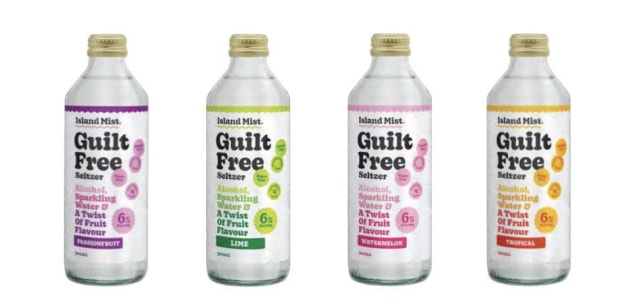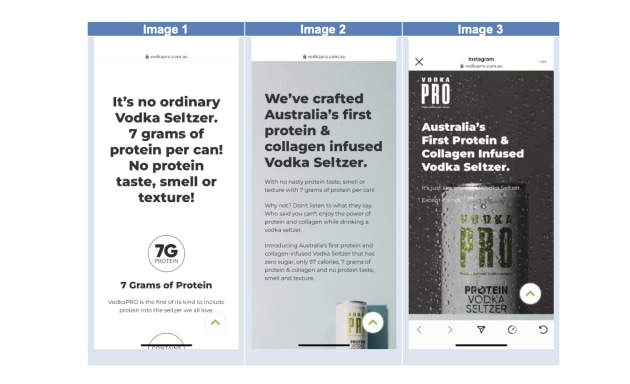After the Alcohol Beverages Advertising Scheme (ABAC) transitioned to a new Responsible Alcohol Marketing Code in the final quarter of 2023, the regulator has shared its recent decisions and warnings for complaints against alcohol products in breach of the new code. All complaints received from 1 January were considered against the new standards.
At the beginning of 2023, ABAC advised that the number of complaints and determinations it had dealt with in the first three months of 2023 was higher than the same time in 2022, with a record 57 complaints and 23 determinations.
Since the new code was put into action, ABAC has encouraged everyone involved in the marketing of alcohol to complete its one hour free online training course, which has been updated to reflect the new provisions - available here.
Ambiguous packaging
Garage Project’s T-Sauce, a Mexican Michelada inspired kettle sour beer, received complaints against its packaging not distinctly establishing the product as an alcoholic beverage.
The ABAC panel found that on balance the packaging of the T-Sauce product breached the Part 3 (b)(i) standard. In reaching this conclusion the panel noted:
- the front of the packaging does not unambiguously establish the product as an alcohol beverage and its overall appearance might be confused with a product such as a tomato sauce or tomato juice;
- the anthropomorphic tomato depictions closely resemble those found in children’s books;
- tomato and tomato sauce (as compared to pickles) is a vegetable and product more likely to be familiar and relatable to minors; and
- taken as a whole a reasonable person would probably understand the packaging has more than incidental appeal and has strong or evident appeal to minors.
The brand also received complaints against its Pickle Beer and Spicy Pickle Beer products, which were dismissed.
Garage Project has since advised that T-Sauce is no longer available and will not be re-released in Australia in the future.
Misleading benefits
Alcoholic seltzer brand Island Mist Guilt Free Seltzer was found to breach the code through certain terms and copy used on its packaging and online.

The ABAC panel found that the product’s packaging, and the use of the term “guilt free” in the company’s social media handles and account names and website copy using the words “…healthier alcoholic option” and “an easy drinking, low calorie, sugar free experience with all the flavour and none of the bad stuff!” all breached the code.
In reaching this conclusion the panel noted:
- That a reasonable person would conclude from the website copy that the company’s alcoholic beverages offer therapeutic benefits, are relatively beneficial for a person’s health or wellbeing and do not have the adverse side effects of alcohol consumption;
- the packaging information hierarchy highlights the descriptor “guilt free” over all other branding elements and this descriptor would be probably understood as meaning that the product can be consumed without any negative consequences;
- the subordinate packaging references to the product being gluten, sugar and preservative free would not likely alter the overall understanding that the product has no negative consequences; and
- this goes beyond a comparison of the product’s attributes to an “ordinary” alcohol beverage and would probably be understood as claiming it is relatively beneficial in health terms compared to alternate products.
The advertiser for the product advised that it will remove the term “guilt free” from its marketing communications and discontinue the packaging.
Vodka seltzer brand VodkaPRO’s ingredient statements and claims were also reviewed by the ABAC panel after the brands social media posts received complaints.

Of the four social media images referenced in the complaint, the panel found that one went beyond a factual statement and claimed the product provided the therapeutic benefit of the “power of protein and collagen”. Further, the company's Instagram feed was not age restricted at the time of the complaint and accordingly the company was in breach of Part 4 (b).
The company removed reference to the “power of protein and collagen” and also implemented age restriction controls on its Instagram and Facebook accounts.
The majority of breaches during the last quarter of 2023 occurred with alcohol packaging. ABAC updated its Packaging Compliance Guide last year.
One case that caught the headlines was CUB's Hard Solo, an alcoholic version of the well-known Solo soft drink. Billson's was also found to have breached the code with its packaging looking similar to the colours and product names of soft drinks and confectionery.






